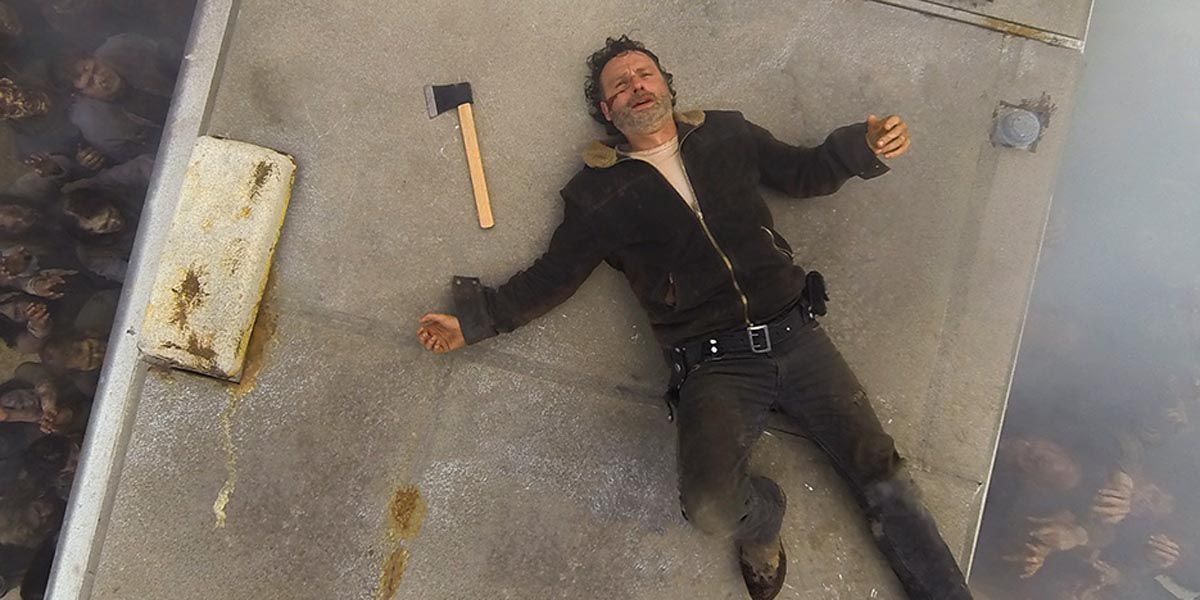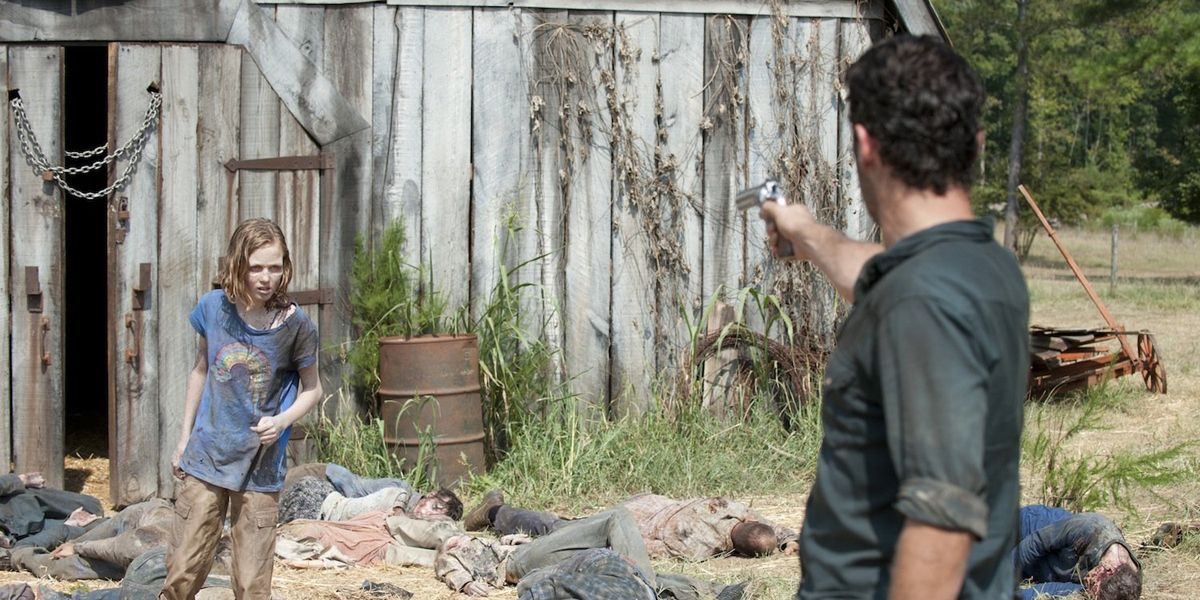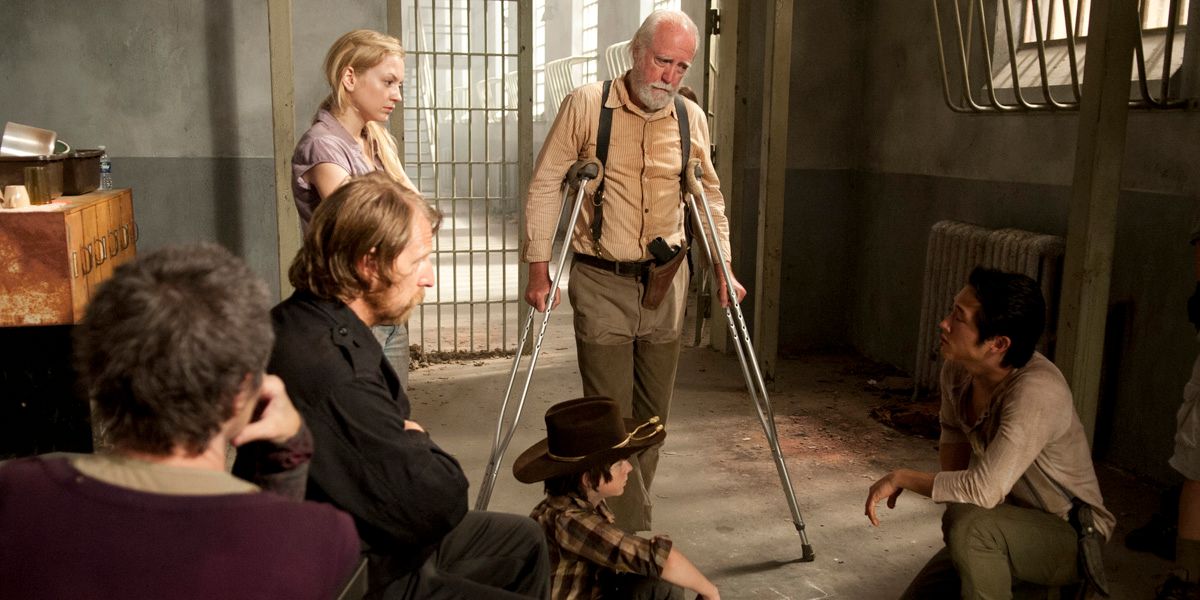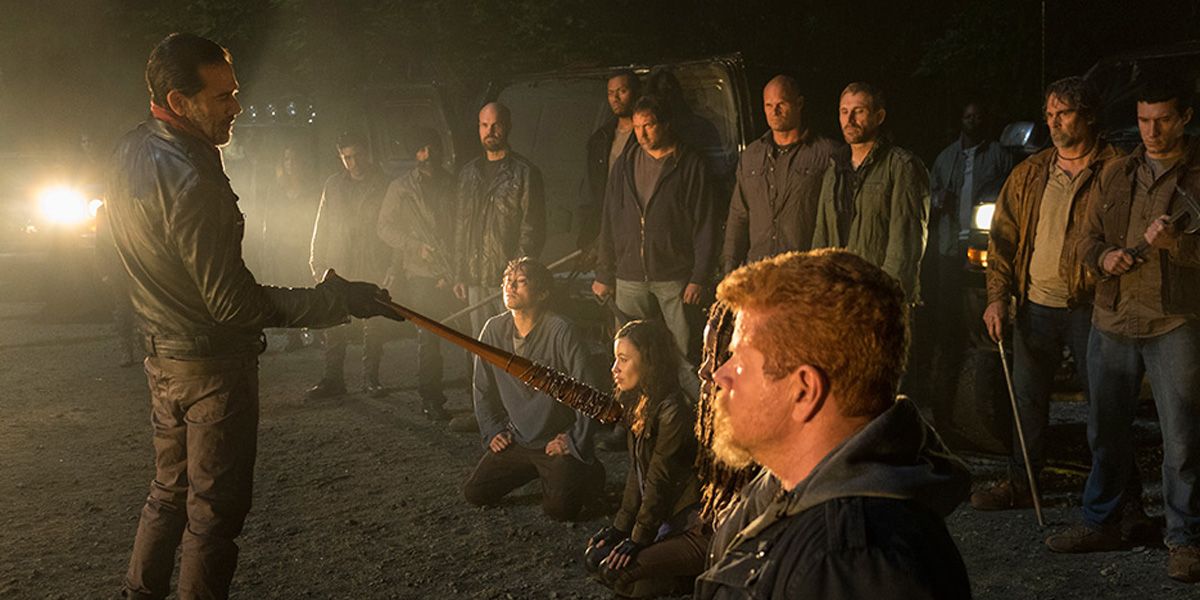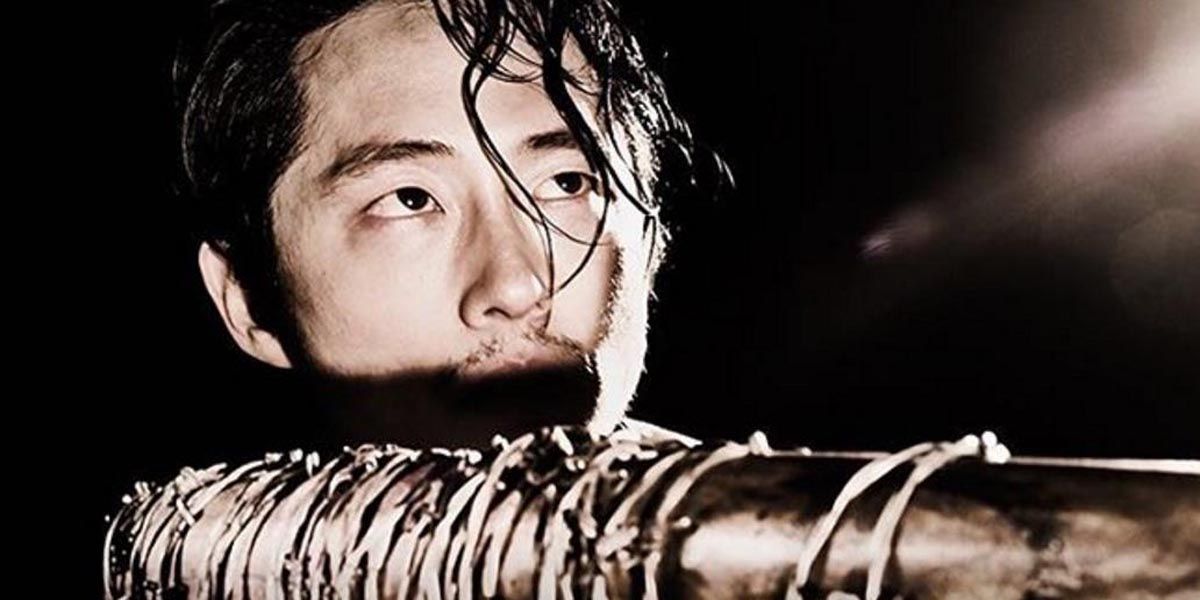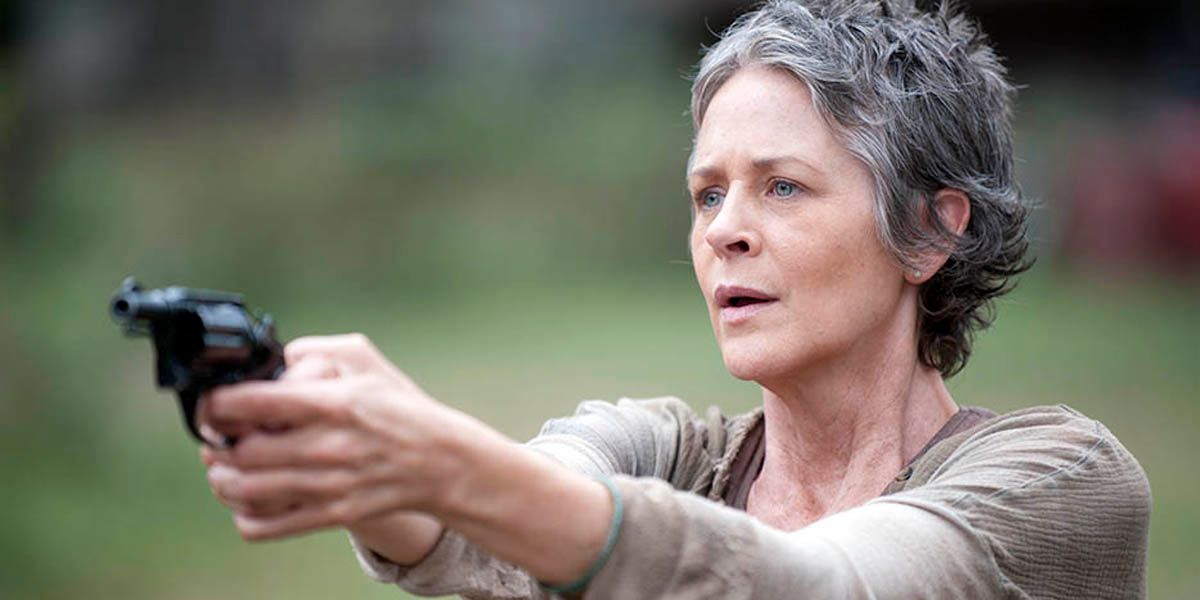We need to talk about “The Walking Dead."
Last week's Tara-focused episode of the AMC drama pulled in 10.4 million viewers, the lowest since Season Three and a startling decline from the near series-high 17 million that tuned in a month earlier for the heavily promoted Season Seven premiere.
Although audiences were glued to the screen to at last learn the identities of Negan's victims, once the cliffhanger was resolved ratings began a steady decline, through Daryl’s trip to Easy Street, Negan's basic cable-approved cursing and, finally, Tara’s maritime adventure. Not even the promise of a tiger-owning "king" named Ezekiel has buoyed viewership this season.
RELATED: "The Walking Dead": 15 Reasons the TV Show is Better Than the Comic
“Well, that’s a real Lucille to the nuts,” Abraham might say if he were still with us. Why, after nearing record heights, have ratings plummeted? Has the United States replaced “The Walking Dead” as everyone’s favorite apocalyptic nightmare?
I can't say with any certainty. However, I do know my own interest in “The Walking Dead” has been waning for a long time, with the Season Seven premiere feeling as if it jumped a particular shark.
Prologue: Longing for Mazzara
Most "Walking Dead" fans are aware the AMC hit has had more than its fair share of showrunners. Many fans and critics generally consider director Frank Darabont, who developed Robert Kirkman's horror comic for television, as the old gold standard. His early episodes were as languidly paced as a rotting walker who fell off her bicycle. The general consensus is that the show, under his supervision, felt more cinematic (Darabont did, after all, give us “The Shawshank Redemption”), and it certainly was. But for my money, Glen Mazzara’s takeover in the middle of Season Two was the start of something beautiful. After episodes of meandering around the farm, there was a clear difference once we found Rick staring past his smoking gun at a dead Sophia.
While the survivors remained on Hershel’s Farm for the rest of the season, the action picked up. Mazarra’s era brought us the impactful deaths of Shane and Lori, and the introduction of The Governor, which, for as good of a job Jeffery Dean Morgan is doing as Negan (the mustache alone is award-worthy), the show has still had trouble topping. As a whole, that stretch of episodes remains my favorite period for “The Walking Dead."
After the disappointing Season Three finale and Mazzara’s own sudden departure, Season Four marked the start of wildly uneven quality, kicking off with about eight episodes of our heroes sitting in the prison and coughing.
Of course, there were still great storylines -- namely, Terminus and the introduction to Alexandria -- with plenty of standout stand-alone episodes.
That brings us to the now-infamous Season Six cliffhanger. Suffice to say it was not the most well-received decision the show's writers ever made. “I ask people to give us the benefit of the doubt that it’s all part of a plan, all part of a story," current showrunner Scott M. Gimple said in a press conference following the season finale. "I truly hope that people see [the Season Seven premiere] and they feel it justifies the way we’ve decided to tell the story. That is the way it is in our minds. I know what [the Season Seven premiere] is, and I feel that it delivers on what [the Season Six finale] sets up.”
For all their talk about it being for the good of the story, it’s difficult to believe that Gimple & Co. didn’t think a cliffhanger would also result in more people tuning in for Season Seven. I remember walking away from “Last Day on Earth" feeling as if "The Walking Dead" had, in fact, become cynical. As Negan bashed in his victim’s head in a point-of-view shot, the audience watched blow after blow as blood poured over the camera lens. No matter how high your tolerance is for violence, that was some sick shit.
The Day Will Come When You Won’t Be (Watching)
Despite my qualms, I returned to “The Walking Dead” with a shrug, as I had many times before. Only all the other instances when I'd grown weary of walkers, the series always bounced back, eventually.
So what did this time bring? After months of teasing, the writers delivered another 20 minutes of waiting, but not before showing us trite, fake-out clips of all of the key characters (in black and white, so we know it was artistic and not a shallow ploy) being murdered by Negan. Isn’t this a fun guessing game? #WhoWasIt?!
The actual reveal of the brutal deaths of first Abraham and then Glenn was chilling. The "twist" of Darryl’s loss of control and Glenn’s subsequent punishment actually felt real and horrifying. But that wasn’t enough for the writers; they had to give us the money shot.
We had to see Glenn, played terrifically by Steven Yeun, with his head partially bashed in.
I know, I know: That same shot is in the comics. However, “The Walking Dead” television series is different from “The Walking Dead” comic book. I’ve only read a smattering of issues, but pick up any copy, and the contrast is stark. People fuck. People say "fuck." Rick and our "heroes" stop being heroic way sooner than in the show. That's not to say the solution is to make the show darker (please, for the love of God, don’t). It’s just that comics and television are inherently different mediums. Comics have had characters and stories going on for decades in multiple iterations.
Although Rick Grimes has been killing walkers for 13 years and counting, we can’t make Andrew Lincoln run in the 100-degree Atlanta heat for the rest of his life. Plus, while we’re used to following written characters through their journeys for years, most -- maybe all -- television shows have an expiration date. Sometimes, even the best-executed plotline reaches a point where it becomes stale. There are other limitations to television, too: If AMC has shelled out the money for a prison set, a farm set, etc., we know we’re locked into that location for at least a season (longer, if somebody contracts the Death Flu). It’s also bizarre that the worst curse word we can hear Negan utter is “shit,” yet we’re allowed to see a man’s face partially hanging off his skull. As violent as the comics are, seeing the same scenes played out on screen with Emmy-nominated craftsmanship by Greg Nicotero will almost always be more upsetting, at least on a visceral level.
Within the comics, it should be noted that Glenn’s killing included some fourth wall-breaking commentary on the series up to that point. At a point, Negan was writer Robert Kirkman, talking to the audience directly.
Ironically, the show's build-up to Glenn’s death -- the Season Six cliffhanger, the #WhoWasIt social media promotional campaign, the egging on of the first 20 minutes of the premiere -- was tone deaf.
There’s been brutal storylines on the show before. In fact, "The Walking Dead" is incredibly morose for being one of the highest-rated programs on television. The Season Four episode “The Grove” involves Carol and Tyreese struggling with the increasingly troubled 12-year- old Lizzie, who kills her own sister and wants to kill her entire makeshift family unit, believing they can live happily ever after as zombies. Her previous mental illness tragically mixes with their post-apocalyptic circumstances, leaving Carol no choice but to kill Lizzie after having lost her real daughter, Sophia. It’s one of the best “Walking Dead” episodes, probably my favorite.
But I hated "The Day Will Come When You Won't Be," not because it was "too dark," but because it was downright masochistic. There was a point to the violence in “The Grove” and most previous episodes. Carol must grapple with the cycle of violence she’s stuck in while Tyreese must confront that he’s a pacifist in a violent world. They don’t make us watch Lizzie or her sister die. We never see their bodies, and we don’t need to. What was the point of seeing Glenn’s face bashed up? What was the point of Carl nearly getting his arm cut off (a change from the comic I’m actually thankful for)? So we could comprehend that Negan is a capital-B Big Bad? Cranking up the volume isn't always the solution. If the only way to up the ante is going more extreme, the noise can become deafening. Something as immersive as television cannot be powered by dread and shock value alone. Not forever.
The additions of other communities like The Kingdom and Hilltop provide some much-needed tonal diversity. That kind of worldbuilding can lead to more risks in storytelling, like focusing in on only one of our Alexandrians a la Daryl or Tara. It’s tough to say how satisfying or successful the rest of “The Walking Dead” will be, but as a wise man once said, in a Southern drawl: “We can still come back. We’re not too far gone.”

